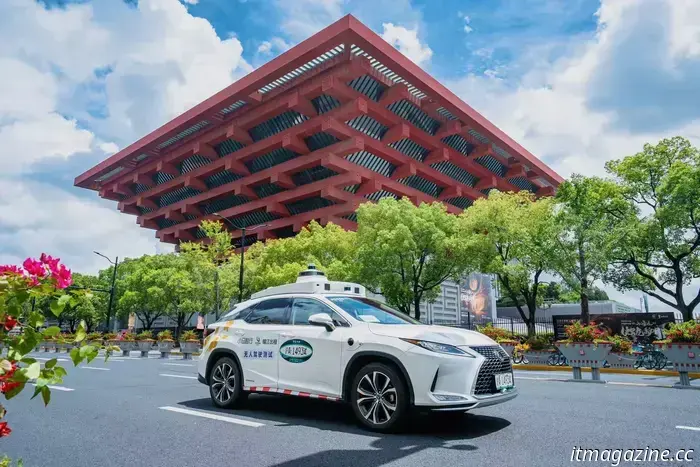
Chinese firms are hurrying to join the robotaxi trend and are placing their bets on generative AI technologies.
A fully autonomous Lexus RX450h SUV, created by Pony.ai, is transporting passengers at this year's World Artificial Intelligence Conference (WAIC) in Shanghai on July 26, 2025. Credit: Pony.ai
The competition in the robotaxi market between China and the US is intensifying as new contenders emerge. Chinese automotive technology companies Horizon Robotics and Deeproute.ai have announced their work on robotaxi technologies, motivated by the belief that advancements in computing and generative AI have reached a critical milestone. During an earnings meeting on Wednesday, CEO Yu Kai indicated that Horizon Robotics plans to reveal partnerships with several robotaxi fleet operators later this year. He envisions the company’s “Horizon SuperDrive” advanced driver assistance solution (ADAS) serving as the essential technological foundation for fully autonomous ride-hailing vehicles, positioning Horizon as a provider of "technical infrastructure."
Horizon, which is publicly traded in Hong Kong and backed by Volkswagen, is not acting alone. Deeproute.ai, which counts Alibaba and Great Wall Motor among its investors, intends to develop its robotaxis using its Vision Language Action (VLA) model, which is already in use on production vehicles. This Shenzhen-based startup has a history of creating futuristic robotaxis since 2019 but has shifted its focus towards developing more practical ADAS systems for automakers starting in 2022.
Both Horizon and Deeproute are part of a group of Chinese companies that believe emerging AI technologies, such as end-to-end (E2E) neural networks and large language models (LLMs), will enable a gradual shift from basic assisted driving to fully autonomous driving. According to Yu, the entire industry is expected to transition towards all-scenario driverless mobility within the next five to ten years.
China’s robotaxi industry is becoming increasingly competitive. CATL has joined the race in collaboration with Alibaba’s fintech division Ant Financial and the bike-sharing service Hellobike, while Momenta, another Chinese ADAS provider, struck a deal with Uber for robotaxi deployment in May. Xpeng Motors, a competitor to Tesla in China, is planning to test its robotaxis in 2026. Baidu currently leads the sector with a fleet of over 1,000 vehicles operating in more than a dozen Chinese cities, followed by Pony.ai and WeRide.
Experts believe there is significant potential for robotic vehicles as the technology advances and labor costs continue to rise. UBS projected that by the early 2030s, robotaxi companies could operate more than 300,000 vehicles collectively across a 3,000-square-kilometer (1,158-square-mile) area in China's four largest cities, eventually expanding their fleets nationwide to four million by the end of the decade. This would represent a market size of $8 billion and $183 billion, respectively.
Local governments often take a cautious approach to promoting highly autonomous vehicles due to safety and employment concerns. However, Morgan Stanley recently indicated that it anticipates a fresh wave of government licenses to be issued in China as robotaxis become more dependable. The firm believes that the global development of robotaxis will progress more rapidly than the rollout in China.
Morgan Stanley analysts, led by Tim Hsiao, noted on July 29 that Tesla's advancement in robotaxi deployment would accelerate the pace of changes in global ride-hailing. While Waymo currently stands as the dominant player globally, Tesla is likely to challenge this position, according to Reuters. Excluding the US, the anticipated global market size is projected to reach $394 billion by the late 2030s, with growth potentially being exponential rather than linear, as stated by UBS analyst Paul Gong to TechNode on Thursday.
Jill Shen is a technology reporter based in Shanghai, focusing on Chinese mobility, autonomous vehicles, and electric cars. You can reach her via email at [email protected] or on Twitter: @jill_shen_sh.
Other articles
Chinese firms are hurrying to join the robotaxi trend and are placing their bets on generative AI technologies.
Horizon Robotics and Deeproute are confident that advancing AI technologies will allow them to progressively shift from basic assisted driving to complete autonomous driving.
